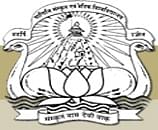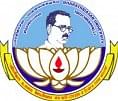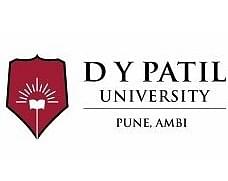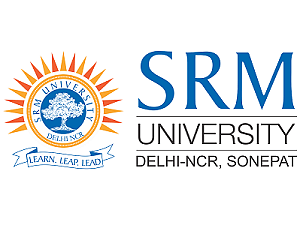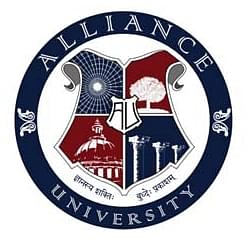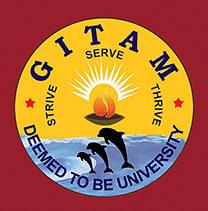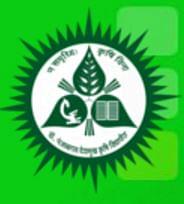Introduction about Ph. D in Management of Education
A Ph.D. in Management of Education from best college is an advanced academic degree program designed for
individuals seeking expertise in the administrative and strategic aspects of
educational institutions. This specialized field combines principles of
education, management, leadership, and organizational development to prepare
scholars and practitioners for leadership roles in educational settings.
In this doctoral
program, students typically engage in rigorous coursework covering areas such
as educational leadership, policy analysis, finance, human resources
management, curriculum development, and strategic planning. They also conduct
original research in the form of a dissertation, delving deep into a specific
aspect of educational management or administration.
The curriculum is
often interdisciplinary, drawing from fields such as business administration,
psychology, sociology, and public policy to provide students with a
comprehensive understanding of the complex challenges facing educational
organizations today.
Graduates of a
Ph.D. in Management of Education program are equipped to pursue careers as
school administrators, educational consultants, policy analysts, curriculum
developers, or researchers in educational institutions, government agencies,
nonprofit organizations, and private companies. They possess the skills and
knowledge needed to lead educational institutions effectively, implement
innovative strategies, and contribute to the advancement of the field through
research and scholarship.
What is admission process for Ph.D in Management of
Education ?
The admission process for Ph.D. in Management of Education typically involves several
steps, which may vary slightly depending on the institution. Here's a general
overview:
Research Programs: Begin by researching Ph.D. programs in
Management of Education to find ones that align with your academic and career
goals. Look into factors such as faculty expertise, research opportunities,
program reputation, and location.
Meet Prerequisites: Ensure you meet the prerequisites for
admission, which often include a master's degree in education or a related
field, along with relevant professional experience in education or management.
Application: Complete the application form provided by
the institution offering the Ph.D. program. This may be done online through the
university's admissions portal. Pay attention to deadlines, as they can vary
between programs.
Transcripts: Submit official transcripts from all
post-secondary institutions attended. These transcripts should demonstrate
strong academic performance, particularly in relevant coursework.
Letters of
Recommendation: Typically,
applicants are required to provide letters of recommendation from academic
and/or professional references who can speak to their qualifications, potential
for success in a doctoral program, and research capabilities.
Statement of
Purpose: Write a statement
of purpose outlining your academic and professional background, research
interests, reasons for pursuing a Ph.D. in Management of Education, and career
goals. This is an opportunity to demonstrate your passion for the field and
your readiness for doctoral-level study.
Resume or
Curriculum Vitae (CV):
Provide a comprehensive resume or CV detailing your educational background,
work experience, research experience, publications, presentations, and any
relevant achievements or certifications.
Standardized Tests: Some programs may require standardized
test scores, such as the GRE (Graduate Record Examination) or the GMAT
(Graduate Management Admission Test). Check the specific requirements of each
program you're applying to.
Writing Sample: Some programs may request a writing
sample, such as a research paper or academic essay, to assess your writing and
analytical skills.
Interview (if
applicable): Depending on
the program, applicants may be invited to participate in an interview as part
of the admissions process. This interview may be conducted in person, over the
phone, or via video conference.
Application Fee: Pay the application fee, if applicable, as
required by the institution.
After submitting
your application materials, the admissions committee will review your complete
application package and make decisions based on factors such as academic
qualifications, research potential, letters of recommendation, statement of
purpose, and fit with the program. If admitted, you'll receive an offer of
admission along with any relevant financial aid or funding information.
What is eligibility for Ph. D in Management of
Education?
Eligibility criteria for Ph.D. in Management of Education can vary depending on the
specific program and institution offering the degree. However, here are some
common eligibility requirements you may encounter:
Educational
Background: Typically,
applicants are required to hold a master's degree in education or a related
field from an accredited institution. The master's degree may need to be in a
relevant area such as educational leadership, administration, management,
policy, or a closely related field.
Academic
Performance: Applicants are
generally expected to have a strong academic record, particularly in
graduate-level coursework relevant to education, management, leadership, or
related disciplines. This may be evidenced by transcripts from previous
academic institutions.
Work Experience: Many Ph.D. programs in Management of
Education prefer or require applicants to have relevant professional experience
in the field of education or related areas. This experience might include
teaching, school administration, educational consulting, policy analysis, or
other roles within educational organizations.
Research Experience
and Skills: Demonstrated
research experience and skills are often valued for admission to a Ph.D.
program. This might include prior research projects, publications,
presentations at conferences, or involvement in research-related activities.
Letters of
Recommendation: Applicants
are typically required to submit letters of recommendation from academic and/or
professional references who can speak to their academic abilities, research
potential, work experience, and suitability for doctoral-level study.
Statement of
Purpose: A well-written
statement of purpose or personal statement is often required, in which
applicants articulate their academic and career goals, research interests,
reasons for pursuing a Ph.D. in Management of Education, and how the program
aligns with their aspirations.
Standardized Test
Scores: Some programs may
require applicants to submit scores from standardized tests such as the GRE
(Graduate Record Examination) or the GMAT (Graduate Management Admission Test).
However, many programs are moving away from standardized test requirements or offering
waivers for certain applicants.
Language
Proficiency: International
applicants whose native language is not English may need to demonstrate
proficiency in English through standardized tests such as the TOEFL (Test of
English as a Foreign Language) or the IELTS (International English Language
Testing System).
It's important to
note that eligibility requirements can vary between institutions and programs,
so it's essential to carefully review the specific requirements of each Ph.D.
program you're interested in applying to. Additionally, some programs may have additional
requirements or preferences beyond those listed here.
What is syllabus for Ph. D in Management of
Education?
The syllabus for Ph.D. in Management of Education can vary significantly depending on the
specific program, institution, and the research interests of faculty members.
However, here are some common topics and areas of study that you might
encounter in a typical Ph.D. program in Management of Education:
Foundations of
Education Management and Leadership:
Historical
perspectives on education management and leadership
Theories of
educational administration and organization
Legal and ethical
issues in educational management
Governance
structures and policy frameworks in education
Educational Policy
Analysis and Development:
Policy formulation,
implementation, and evaluation in educational contexts
Policy analysis
methodologies and techniques
Education law and
regulations
Comparative
education policy studies
Organizational
Behavior and Leadership:
Organizational
theory and behavior
Leadership theories
and models
Strategic
management in educational organizations
Change management
and innovation in education
Financial
Management and Resource Allocation:
Budgeting and
financial planning in education
Resource allocation
and fiscal policy
Financial
sustainability and resource management strategies
Economics of
education
Human Resource
Management in Education:
Recruitment,
selection, and retention of educational personnel
Performance
evaluation and professional development
Diversity and
equity issues in human resource management
Labor relations and
collective bargaining in education
Curriculum
Development and Assessment:
Curriculum theory
and design
Assessment and
evaluation in educational contexts
Instructional
leadership and pedagogical strategies
Curriculum
alignment with standards and goals
Research
Methodologies:
Qualitative and
quantitative research methods
Survey design and
data collection techniques
Statistical
analysis and interpretation
Mixed methods
research approaches
Special Topics in
Education Management:
Educational
technology and digital learning
Globalization and
international education management
Community
engagement and partnerships in education
Educational
entrepreneurship and innovation
Dissertation
Research:
Proposal
development and research design
Data collection and
analysis
Dissertation
writing and defence





